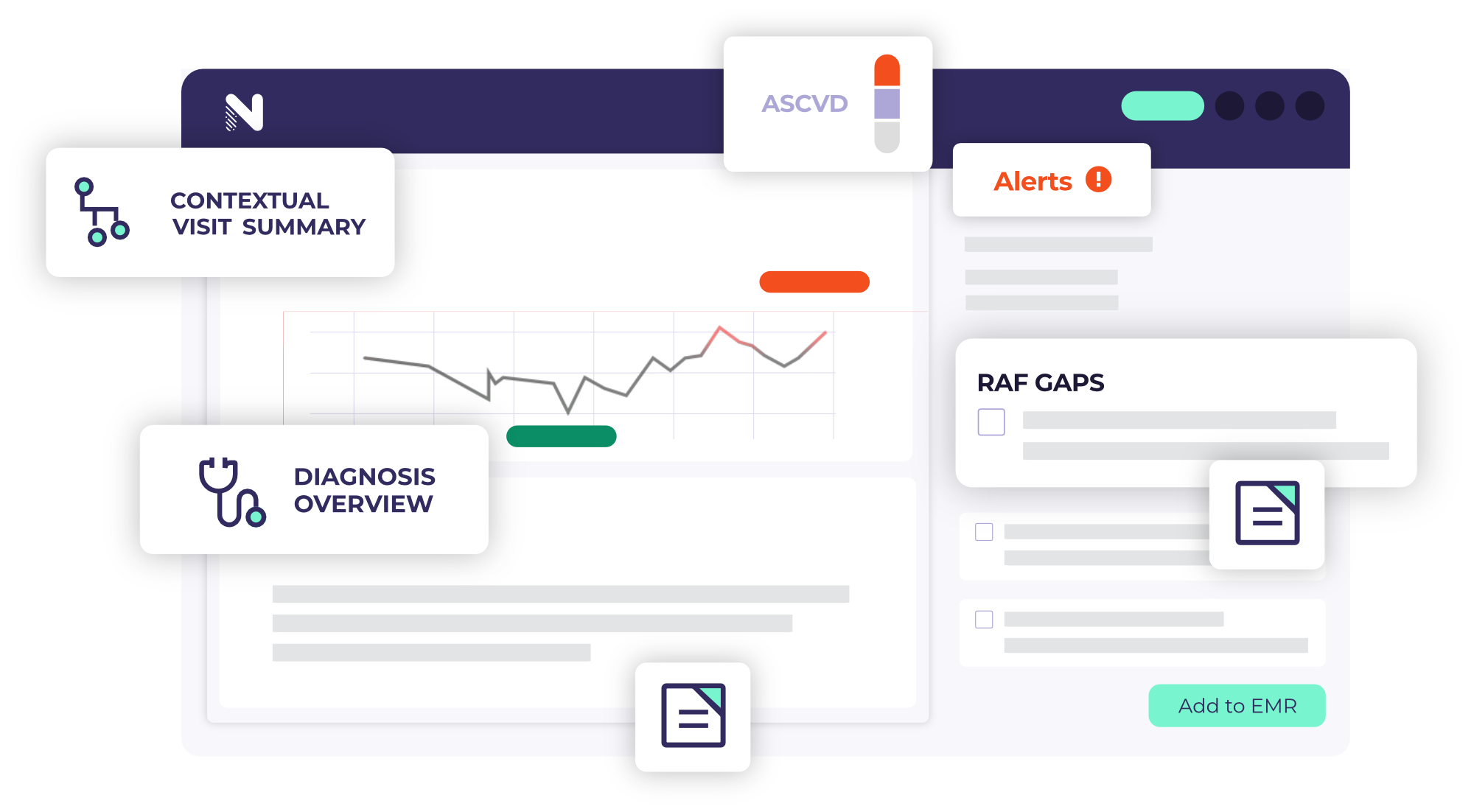Navina, a company developing AI-powered assistant software for physicians, today announced that it raised $22 million in Series B funding led by ALIVE with participation from Grove Ventures, Vertex Ventures Israel and Schusterman Family Investments. Bringing the startup’s total raised to $44 million, inclusive of a grant from the Israeli Innovation Authority, the proceeds will be put toward product development and widening Navina’s footprint to home, virtual and urgent care, CEO and co-founder Ronen Lavi told TechCrunch.
Navina was founded by Ronen Lavi and Shay Perera, who previously led the Israel Defense Forces’ AI lab, where they say that they built AI “assistant” systems for analysts suffering from data overload. Their work there inspired the products they went on to built at Navina, which aim to help physicians drowning in medical data.
“The funding comes at a pivotal time for the U.S. healthcare industry on the heels of the pandemic, when physician burnout is at an all-time high,” Lavi told TechCrunch in an email interview. “Navina’s platform is uniquely able to put exactly the right patient information in front of physicians at the right time to give them a deep understanding at a glance, along with actionable insights at the point of care.”
Several startups — and incumbents, for that matter — are developing AI assistant technologies for clinical settings. For example, there’s Suki, which raised $20 million to create a voice assistant for doctors, and Bot MD, an AI-based chatbot for doctors.
Lavi claims that Navina is distinguished by its ability to “understand the complex language of medicine,” including non-clinical data. Trained on a dataset of imaging notes, consult notes, hospital notes, procedures and labs curated by a team led by medical doctors, Navina’s AI systems integrate with existing electronic health records software to identify potential diagnoses and quality and risk gaps requiring attention.

Navina.ai uses AI to process and summarize medical records data. Image Credits: Navina
“Navina differentiates in the way it structures and organizes data specifically for primary care physicians at the moment of care,” Lavi said. “Navina fits into existing workflows and familiar tools, meeting physicians and staff where they are … Its goal is to align workflows to effectively serve patient populations and improve value-based care.”
One point of concern for this reporter is Navina’s diagnostic capabilities. While perhaps helpful, medical algorithms have historically been built on biased rules and homogenous datasets. The consequences have been severe. For example, one algorithm to determine eligible candidates for kidney transplants puts Black patients lower on the list than white patients even when all other factors remain the same.
In response to a question about bias, Lavi said that Navina takes steps to “address health inequities and bias” and “ensure high accuracy of data sets and models.” He added that the company is compliant with HIPAA requirements and underwent a third-party privacy audit, and is in the “final stages” of SOC2 certification.
With “thousands” of clinicians and supporting staff using the platform, Lavi says he doesn’t anticipate the economic downturn significantly impacting Navina. He demurred, however, when asked about the company’s revenue and precise customer count.
“The pandemic gave Navina and other health tech companies a boost as it required both patients and physicians to grow accustomed to new modalities of care, such as telemedicine and remote visits,” Lavi said. “This has led traditional primary care providers to look for solutions that can help them take responsibility for their patients no matter where they enter the health system.”
Navina has 65 employees currently. It expects to end the year with around 75.
Navina secures $22M to process and summarize medical data for clinicians by Kyle Wiggers originally published on TechCrunch
DUOS





